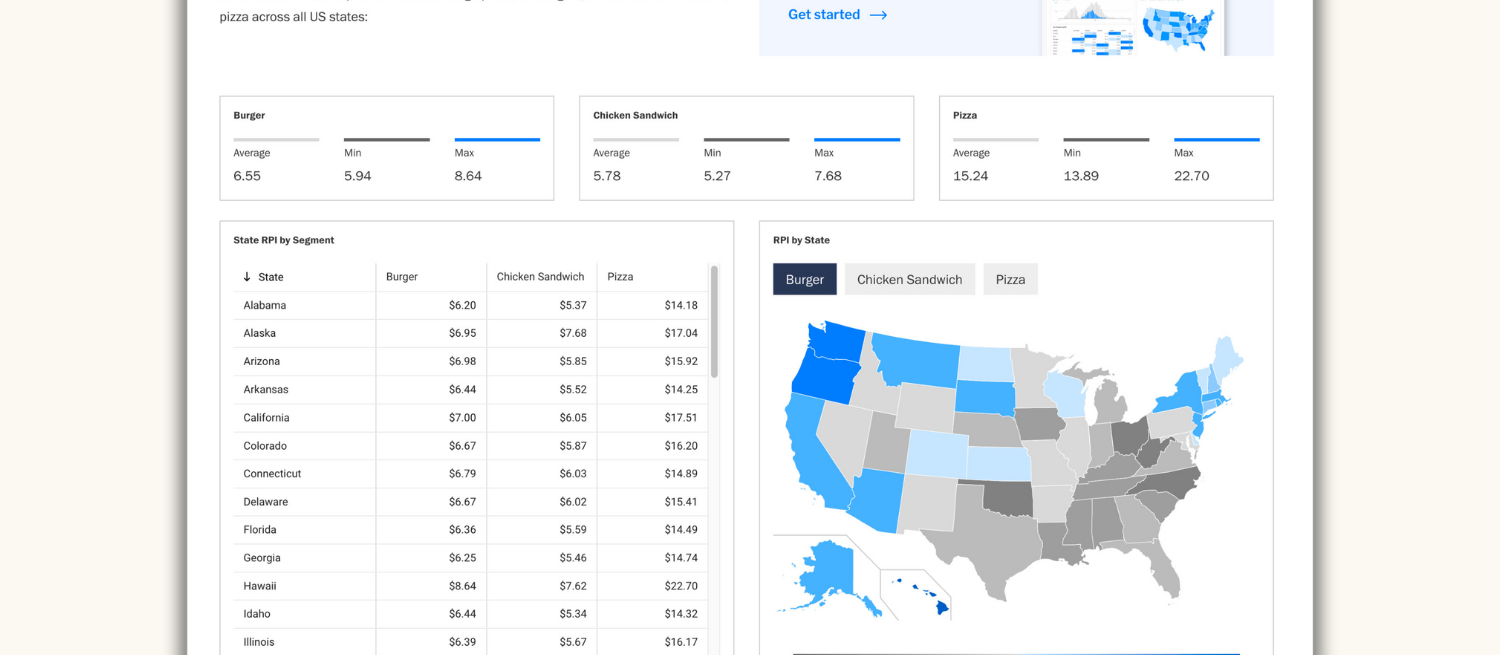Embracing AI: A Recipe for Success in the Restaurant Industry
3 Min Read By Jana Zschieschang
Artificial intelligence (AI) isn’t new, but suddenly it’s everywhere. Stories of its perils or profits appear in everything you read, scroll, listen to, or watch, making it difficult to separate hype from help. Our Revenue Management Solutions (RMS) team believes AI falls into the latter category.
We also believe in the fast-paced world of the restaurant industry, Artificial Intelligence (AI) is emerging as a key ingredient for success. Contrary to the fear of replacing human expertise, its true power lies in extracting invaluable information and data to aid operators and franchisors in making informed decisions.
Applications of AI
AI applications range from mining competitor data to complex analyses of transactional data and P&Ls. By leveraging AI, franchisors can gain insights into their highest expenditures and identify potential cost-cutting measures.
Inventory management becomes a breeze with AI-driven tools that assist in supply chain forecasting. These smart tools anticipate specific thresholds, allowing for timely adjustments in timing and delivery to ensure no menu item bears the dreaded label of being "unavailable today."
Beyond the back office, AI is revolutionizing in-app customer service, especially in mobile apps. The introduction of customer-service chatbots empowers guests to resolve issues and answer questions swiftly, leading to significant time savings. Similar to ChatGPT, the more AI technology is used, the smarter it becomes, creating an exciting opportunity for both brands and franchisors.
The drive-through experience is not immune to AI advancements either. Use cases range from the expected — targeting guests with compelling upsell offers — to the surprising — recommendations driven by day part or customized in real-time as the customer orders.
Mining the Competitor Data Mountain
At the heart of this AI revolution lies data, and large restaurant groups generate vast volumes of it daily. RMS relies on its patented AI models to analyze these mountains of transactional data, helping restaurants optimize menu pricing, group menu items, and customize pricing based on location or region. Complemented by expert human intelligence, RMS enables operators to experiment and track changes over time, gaining valuable insights into customer behavior.
With each advancement in AI, new possibilities emerge. Recently, RMS launched Competitor Price Intelligence. Through the solution, AI compares pricing data within a brand, its competitor set and across an impressive 170,000 restaurant locations, spanning over 50 brands.
In the past, much of this was done manually, but the power of AI overcomes the limitations of analog pricing approaches. For starters, consider data integrity. Data collected by hand will undoubtedly suffer from human error, resulting in unreliable output. Then there’s relevancy. By the time a minimum sample size is manually gathered, data is outdated.
AI processes massive amounts of daily transactional data and removes both limitations, making it a prime candidate for optimizing pricing strategies. Restaurant operators get timely, relevant and clean competitor pricing data and the industry can track price fluctuations.

Which brings us to the second benefit of AI’s power in pricing – the Restaurant Price Index. Drawing on our extensive 25+ years of experience and the expertise of our in-house AI and ML team, we created a customized alternative to the Bureau of Labor Statistics (BLS) Food Away From Home (FAFH) index. RPI is exclusive to restaurants (excluding non-essential information about school lunches, for example). With information and a monthly heatmap featuring the latest average prices for burgers, chicken sandwiches and pizza across all US states, brands and operators can track the direction price is taking across the industry and answer questions such as, “How does our pricing relate to direct competitors or the restaurant down the street?”
Let Your Data Tell You More
Relatively speaking, it’s still early days for AI. It can be a powerful ingredient — saving time, uncovering hidden opportunities for profit, and driving operational efficiencies – in the recipe for success, which involves a perfect blend of AI's capabilities and human intuition.


